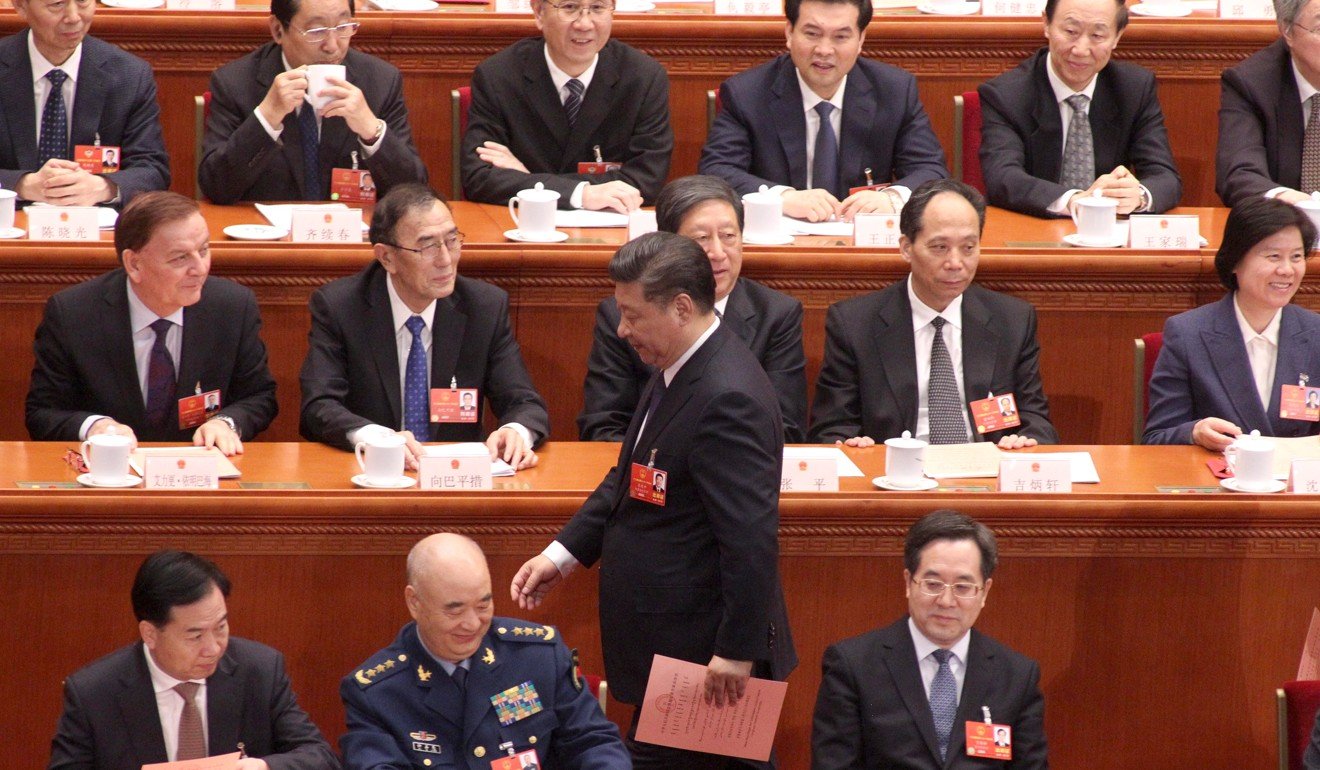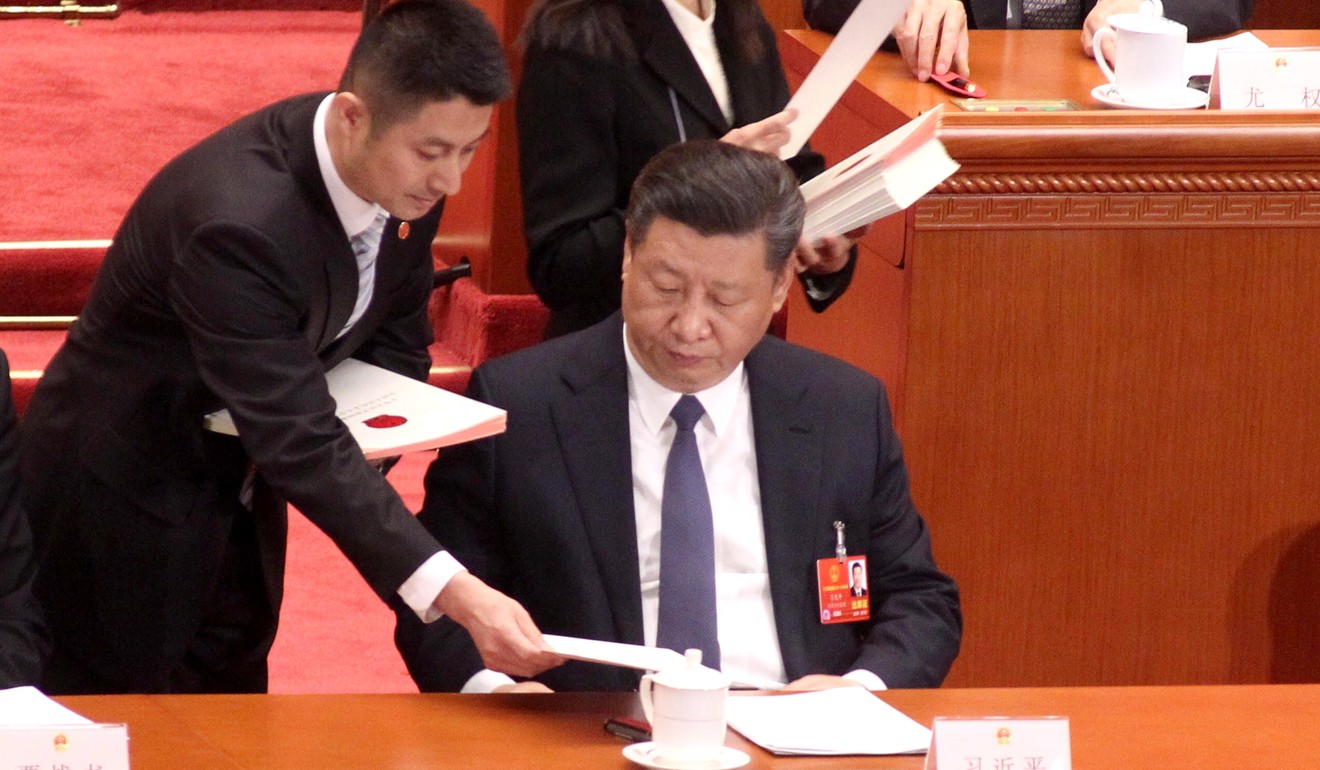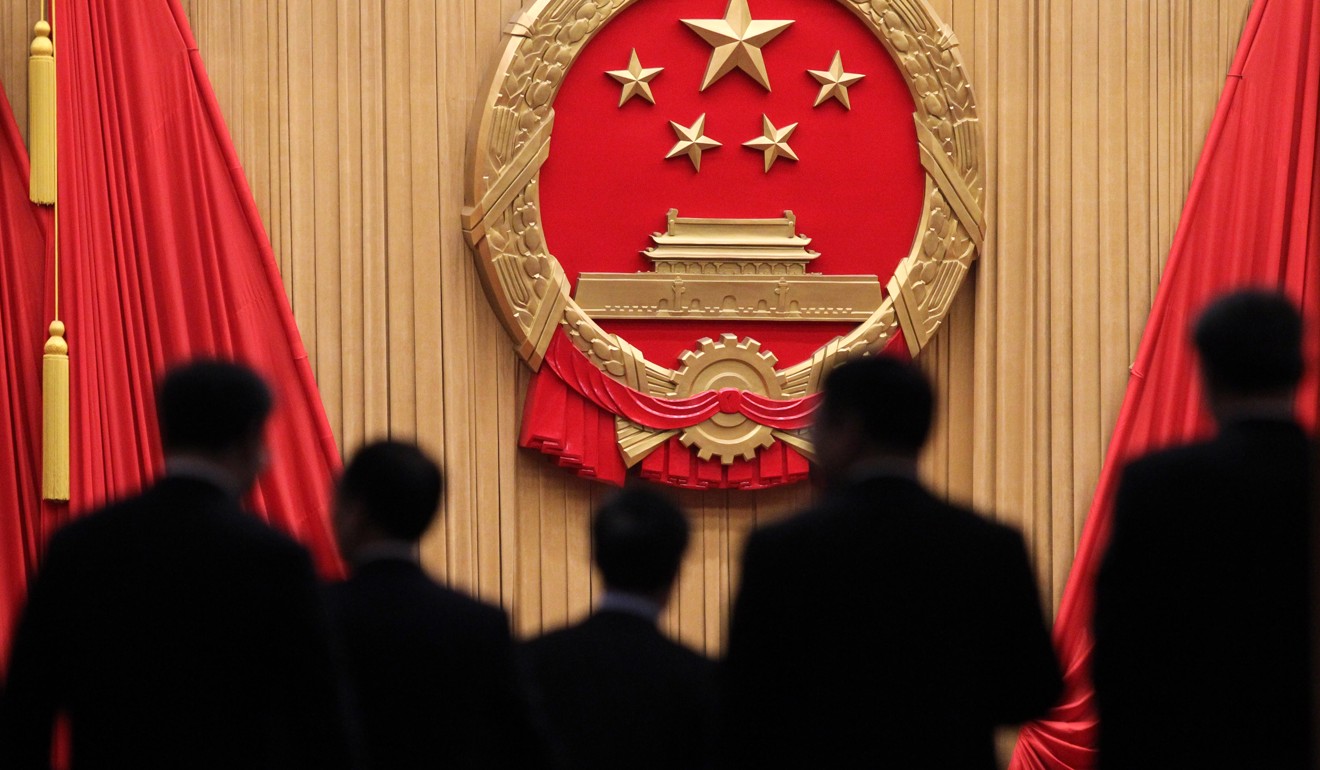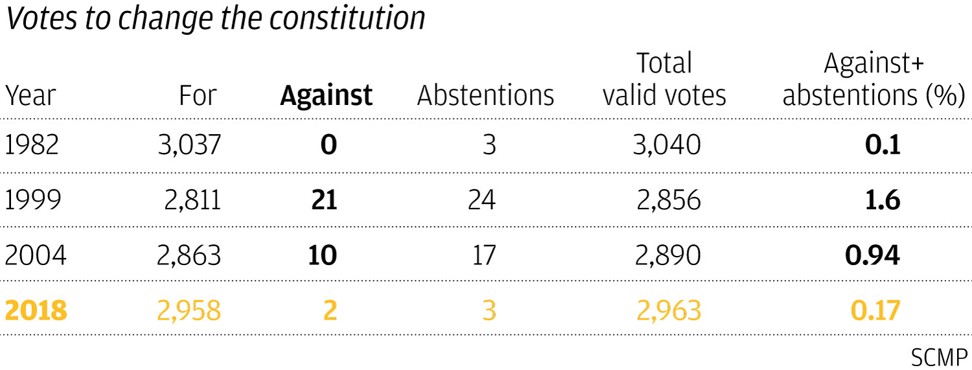Xi Jinping cleared to stay on as China’s president with just 2 dissenters among 2,964 votes
High approval rate gives controversial changes veneer of universal support despite criticism

China’s legislature gave near-unanimous approval to sweeping changes to the constitution on Sunday, formally removing term limits to enable Xi Jinping to stay as president beyond 2023.
Deferring to Xi’s unchallenged authority, the National People’s Congress passed the historic constitutional amendments with 2,958 votes in favour, only two against, and three abstentions. One ballot was invalid and 16 deputies were absent from the vote.
It also endorsed an assortment of revisions to further cement the Communist Party’s control and supremacy. They include setting up a new anti-graft agency to extend the powers of the party’s graft watchdog, inserting the party’s leadership into the main body of the country’s constitution, and adding Xi’s eponymous political theory.
The deputies queued up to place paper ballots in 28 electronic boxes scattered around the Great Hall of the People in Beijing. The whole process took 50 minutes compared with the almost two hours in the two previous constitutional amendments as the ballot boxes recorded the votes electronically. Xi also looked more relaxed compared to last Monday’s opening ceremony for the annual meeting of the NPC, when he looked serious and tense.
The endorsement came as no surprise, given the Communist Party’s iron grip on the legislature. But the extremely high approval rate nevertheless lends the controversial move a veneer of universal support within the establishment, in face of unceasing criticism and scepticism at home and abroad.

“The extraordinarily low veto and abstention numbers in today’s historic vote are evidence of a worrying trend that has suppressed not only debate, but even expressions of the plurality of opinion, within the upper echelons of the party elite,” said Professor Patricia Thornton, a Chinese politics specialist at the University of Oxford.
After just five years in office, Xi has amassed unparalleled authority to become the country’s most powerful leader in decades. With the presidential term limit formally dropped from the constitution, he could become one of China’s longest-serving modern leaders – to the disquiet of many who fear a return to strongman rule.
There are also concerns that the party might be plagued by power struggles in the long run, in the absence of an institutionalised system for power transition.
NPC law drafting official Shen Chunyao defended the revision at a press conference that followed the voting, saying such concerns were mere “hypothetical extrapolations” with no grounds in reality.
“This is an important measure to improve the country’s leadership system, or the so-called ‘trinity’ system,” he said, referring to the three positions Xi holds as the head of the party, the military and the state.
The two-term limit on the presidency was introduced by late paramount leader Deng Xiaoping in 1982 to prevent a repeat of the tumult during Mao Zedong’s decades-long reign, which only ended when Mao died. The two more important titles – that of party general secretary and military chief – have never been bound by formal term limits.

In addition to removing the term limits, the new constitution paves the way for the establishment of a new anti-graft super agency, the National Supervisory Commission.
Critics have labelled the new agency a “legal cover” for the party’s Central Commission for Discipline Inspection, allowing it to continue to investigate and detain suspects without giving them access to lawyers – a practice widely condemned by legal experts and rights advocates.
In a move to further assert the party’s supremacy over the state, the constitution now declares the party’s leadership as the “most fundamental feature of socialism with Chinese characteristics”. The statement was previously restricted to the preamble.
Legal scholars have said the change would make the statement legally binding and any challenge to the party’s rule unconstitutional. But on Sunday, Shen refuted the mainstream academic view, insisting that the preamble was also legally binding.
The revisions also include adding Xi’s political doctrine – “Xi Jinping Thought on Socialism with Chinese Characteristics for a New Era”, to the constitution, following a similar inclusion in the party’s charter in October.
The revision is the biggest and most controversial change to the constitution in 36 years, yet it gained an unprecedentedly high approval rate of 99.8 per cent.
In 1999, 21 deputies voted against and 24 abstained from the amendment to include Deng’s “theory” in the national constitution.

In 2004, 10 deputies voted against and 17 abstained from a constitutional revision to include former president Jiang Zemin’s signature “theory of the three represents” and protection for private assets in the document.
Rana Mitter, professor of modern Chinese politics at the University of Oxford, said he was slightly impressed there were even three abstentions and two votes against the latest amendment.
“The total number of votes is basically a wipe out of any opposition of votes,” he said. “The idea that this would have been very heavily endorsed has clearly been the case, it is always quite rare in the NPC anyway for there to be any significant push backs. Even with a ballot that was supposed to be secret.”
Despite the controversy and the weight of the amendments, public discussion about the move was minimal under a tight blanket of control over social media. The few NPC deputies who spoke to journalists only heaped praise on the revisions.
However, a couple of dissidents did manage to express their discontent on Twitter, which is banned in mainland China.
Additional reporting by Kinling Lo
